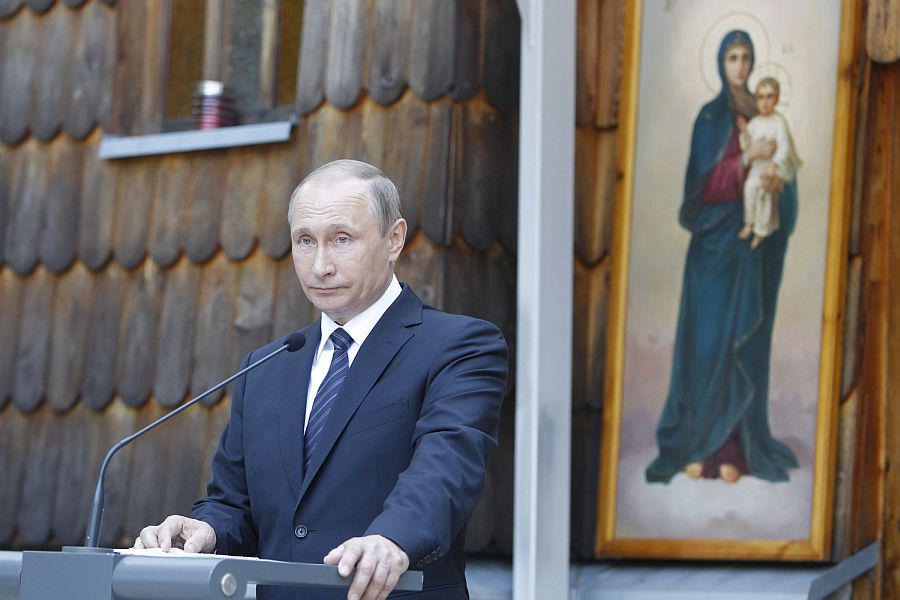Other “cold weapons” lay discarded on the lawn adjacent to the Kranjska Gora police station (from where busses would head for the Russian Chapel): countless brooms and mops, buckets, ladders and plastic bottles. Security measures were greatly beefed up around the area ahead of Vladimir Puttin’s visit to Slovenia on Saturday. As we were driving down the A2 motorway on Saturday morning, I could see from the corner of my eye that police officers were positioned strategically along the motorway. The most fervent of them wore T-shirts saying “Mr. President”, and they didn’t really seem to care about police protocol.
The visitors we talked to avoided most of our questions about the controversy surrounding Putin’s visit. Even those who attended the memorial ceremony for the first time only smirked when we asked them whether they came to see the ceremony or the Russian president. However, many of them said that “the recent media campaign against Putin prevented people from seeing the greater picture”. The chairman of the Slovenia-Russia Association Saša Geržina stressed: “The preservation of the Russian Chapel is not a political act, it’s a manifestation of boundless benevolence.”
After both presidents arrived at the Russian Chapel, Slovenian president Borut Pahor was the first to address the crowd. He stressed in his speech that we care about those who die in wars and that wars are not inevitable; rather, war is a result of political decisions. Putin drew the most thunderous applause of the day when he said that it was the Soviet Union that defeated the Germans in WWII, and that we should not allow revisionists to change our history or glorify political systems that murdered thousands of people.


































































